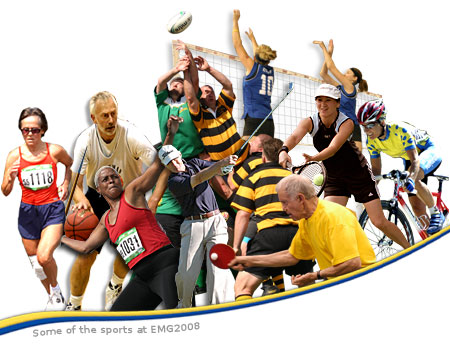Imagine your muscles as overworked employees who have just pulled an all-nighter. After a grueling workout, they don’t just need a coffee break; they require a full recovery plan to function optimally again. Muscle recovery is a critical yet often overlooked aspect of athletic performance. Without adequate recovery, even the most rigorous training regimens can become counterproductive. Recovery is what turns stress into strength, preventing injuries and allowing for consistent progress. Understanding the science behind muscle recovery can make a significant difference in athletic performance and overall well-being.
When engaging in strenuous exercise, muscle fibers sustain microscopic damage, which triggers an inflammatory response. This response signals the body to begin repairing and strengthening the affected tissues. The process unfolds in several phases, starting with inflammation, followed by cellular proliferation, and ultimately remodeling. The inflammatory phase involves an influx of immune cells that clear damaged tissue, while satellite cells—muscle stem cells—activate to regenerate and rebuild muscle fibers. This complex biological process ensures that muscles become stronger and more resilient over time. However, skipping or rushing recovery can lead to overuse injuries, muscle fatigue, and hindered athletic gains.
Nutrition & Sleep: Fueling the Recovery Engine
Muscles don’t rebuild themselves out of thin air; they require proper nutrition to support repair and growth. Protein intake is essential, as it provides the amino acids necessary for muscle protein synthesis. Lean meats, fish, dairy, legumes, and plant-based proteins all contribute to an effective recovery diet. Carbohydrates play a crucial role in replenishing glycogen stores depleted during intense activity, ensuring that muscles have the energy needed for future performance. Hydration is equally vital, as water facilitates nutrient transport and metabolic processes. Consuming balanced meals with a mix of proteins, carbohydrates, and healthy fats can significantly enhance muscle recovery and performance over time.
While training and diet receive the most attention, better sleep is the ultimate recovery tool. During deep sleep, the body releases growth hormone, which plays a key role in muscle repair and regeneration. Poor sleep quality or insufficient sleep disrupts this process, leading to decreased muscle recovery, impaired cognitive function, and an increased risk of injuries. Athletes who prioritize sleep, aiming for seven to nine hours per night, often experience better endurance, strength, and overall athletic performance. The body operates in cycles, and missing sleep can slow down progress just as much as neglecting training or nutrition.
Active Recovery: Moving to Improve & Sauna
Recovery does not always mean complete rest; sometimes, movement is the best medicine. Engaging in low-intensity activities like walking, swimming, or light yoga can improve circulation and facilitate the removal of metabolic waste, such as lactic acid, which accumulates during intense exercise. These activities also help maintain flexibility, prevent stiffness, and promote overall mobility. Active recovery enhances muscle function while ensuring that training adaptation continues without excessive strain. A well-planned recovery strategy includes a balance of active movement and adequate rest, ensuring that athletes remain functional and injury-free.
New research has highlighted the benefits of heat therapy, particularly sauna sessions, in muscle recovery. The high temperatures improve circulation, allowing nutrients and oxygen to reach damaged muscle tissues more efficiently. Studies indicate that heat exposure can also trigger the release of heat shock proteins, which help protect muscle cells from stress and inflammation. Additionally, sauna sessions aid in reducing muscle soreness and improving overall flexibility. Athletes incorporating saunas into their recovery routines often report enhanced performance and reduced recovery times, making this an increasingly popular method for post-workout recovery. Also think about the possiblity of cold water immersion & contrast therapy for faster recovery and less muscle soreness.
Hydration: More Than Just Water
Hydration is essential for muscle function, and while drinking water is crucial, replenishing lost electrolytes is equally important. Sodium, potassium, magnesium, and calcium play key roles in muscle contractions and nerve function. During intense exercise, sweating depletes these electrolytes, potentially leading to dehydration, cramps, and fatigue. Drinking electrolyte-infused beverages, coconut water, or consuming mineral-rich foods can restore balance and enhance recovery. Proper hydration strategies not only improve endurance and muscle function but also ensure that the body's metabolic processes run efficiently post-exercise.
Massage and Foam Rolling: Kneading Out the Kinks
Manual recovery techniques such as massage therapy and foam rolling can alleviate muscle tightness, improve blood circulation, and enhance flexibility. Foam rolling, also known as self-myofascial release, helps break down adhesions within muscle tissue, reducing stiffness and promoting better movement patterns. Sports massages can accelerate the removal of metabolic byproducts while relaxing tense muscles, allowing athletes to recover more quickly between training sessions. Incorporating these techniques regularly can prevent muscle imbalances and reduce the likelihood of overuse injuries.
Mindfulness and Stress Management
Physical recovery is closely linked to mental well-being. Chronic stress increases cortisol levels, which can interfere with muscle repair, lead to fatigue, and even contribute to injuries. Incorporating mindfulness practices such as meditation, deep breathing exercises, or even simple nature walks can significantly reduce stress and support a more efficient recovery process. Mental relaxation allows the nervous system to shift into a restorative state, further optimizing physical recovery and long-term performance.
Optimizing muscle recovery is an intricate balance of nutrition, rest, active movement, and mental resilience. Prioritizing recovery ensures that the body can adapt, grow stronger, and sustain performance over time. Whether through proper sleep, balanced meals, hydration, or active recovery techniques, each aspect contributes to a well-rounded athletic strategy. By treating muscle recovery with the same dedication as training, athletes can maximize their potential, prevent injuries, and achieve lasting success. Investing in recovery isn’t just about feeling better—it’s about performing at your absolute best.













